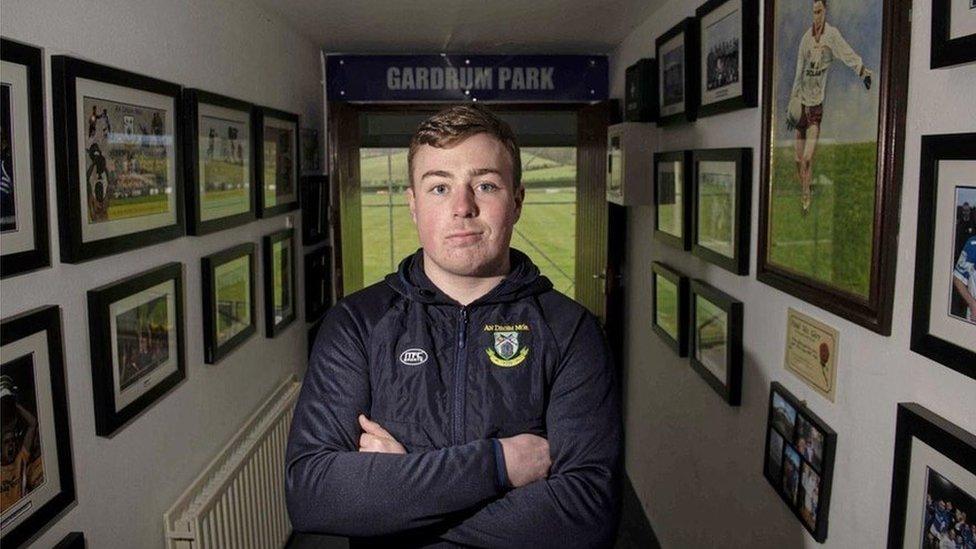Coronavirus: Surge expected in NI mental health referrals
- Published

Dawn Hopper has been dealing with sight loss and lockdown has triggered anxiety issues
"I'm quite an outgoing person, very independent. I have a great job, a real network of friends and a great family."
Dawn Hopper doesn't sound like someone who might suffer from mental health issues.
During the last two years, she's been dealing with sight loss.
It has forced her to stop work and give up driving, while she works with her doctor on her recovery.
She can still get out and about with the help of her husband, and she's learned to make the most of adaptive technology - even down to using a water-measuring alarm so she can make her own cup of tea.
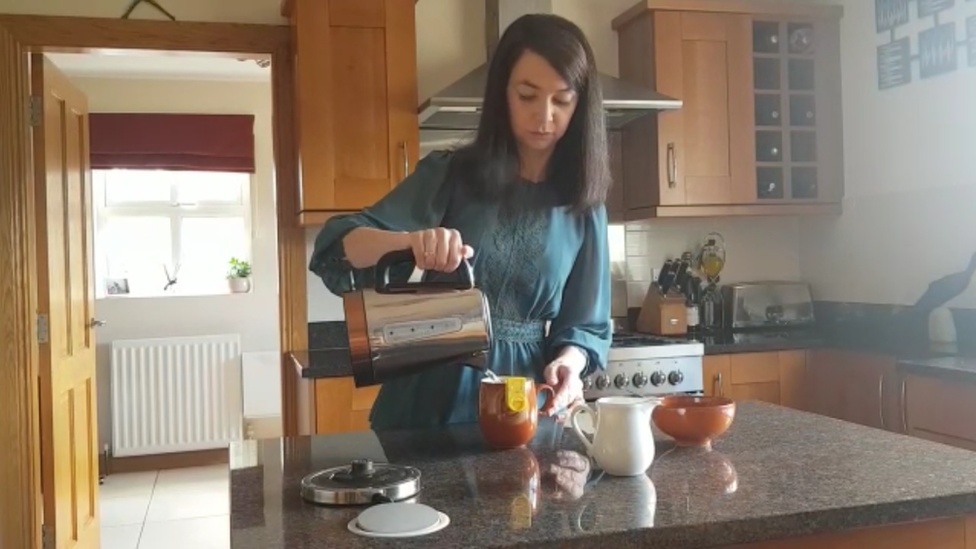
Dawn is using adaptive technology to maintain her independence
But the challenges brought about by Covid-19 triggered a different alarm.
"The lockdown restrictions took a lot of the freedom that I had away, so it really affected me in terms of just worrying, and anxiety," Dawn told BBC News NI.
"I really struggled with that lack of connection with people."
"For me it was physical, as well as mental. I would get chest pains or just be worried, not sleeping, and with Covid, any worries that you have just seem to be magnified that bit more.
"So you really have to dig deep to see how can I help myself - what can I do to change the situation? And it's very difficult.
"I think there's a real stigma around mental health in terms of people saying: 'I don't feel great today; I feel very anxious today; I feel very worried.'"
Stress control tips
Because she had a good relationship with her doctors, she turned to them for help and they pointed her to online resources, external from the Public Health Agency and the Health and Social Care Board.
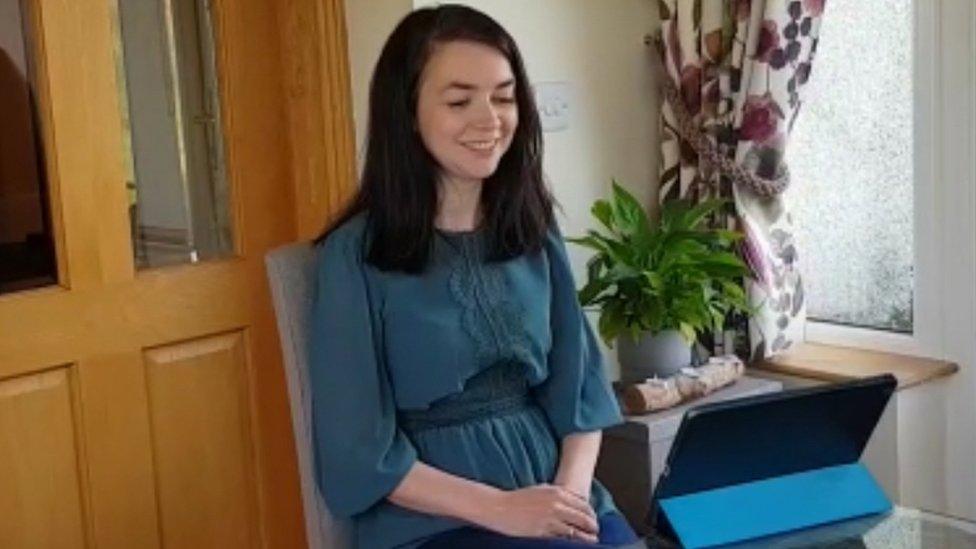
Dawn has found online courses helpful for managing stress
"One of the great things I did was take part in a stress control course and that was a great way of giving me tools to deal with the panicky thoughts - how to control your body in terms of the physical symptoms for mental health, how to get a good night's sleep.
"Just looking at things in a different way to try and take that anxiety down little."
Expected surge
Social distancing has been very successful at containing the virus, but not so good for our mental wellbeing.
"At the moment in our surgeries we're seeing a great increase in mental health work," says Dr Laurence Dorman of the Royal College of GPs.
"Before Covid started in Northern Ireland we had high levels of mental health issues.
"We unfortunately had one of the highest suicide rates in the UK, but what we're seeing now, as Covid has started to ease, is patients ringing our surgeries, contacting GPs, having had current mental health problems exacerbated or experiencing new ones."
Dr Dorman adds: "A lot of patients who previously had no mental health issues have now developed new diagnoses with things like anxiety and depression, and a lot of these have been exacerbated by the social difficulties of the pandemic."
Those social difficulties include the loneliness of isolation, jobs being furloughed or even lost, and disruption to routine meaning people are exercising less, drinking more, or eating less healthily than usual.
Health Minister Robin Swann announced his intention to appoint a mental health champion in April and the post is expected to be filled by next February.
What role would a mental health champion play in Northern Ireland
But as lockdown starts to ease, doctors are preparing for an increase now in mental health issues.
"We know there's a lot of pent-up demand, that individuals with mental health problems just didn't come forward for services, just like individuals with cancer or other conditions," said Ciaran Mulholland, a psychiatrist with the Health and Social Care Board.
"We expect a surge of referrals over the course of the coming weeks, so what we've tried to do is offer a suite of interventions.
"There are online interventions, such as stress control classes and apps that can be used to assist people to help themselves with their own mental health," he explained.
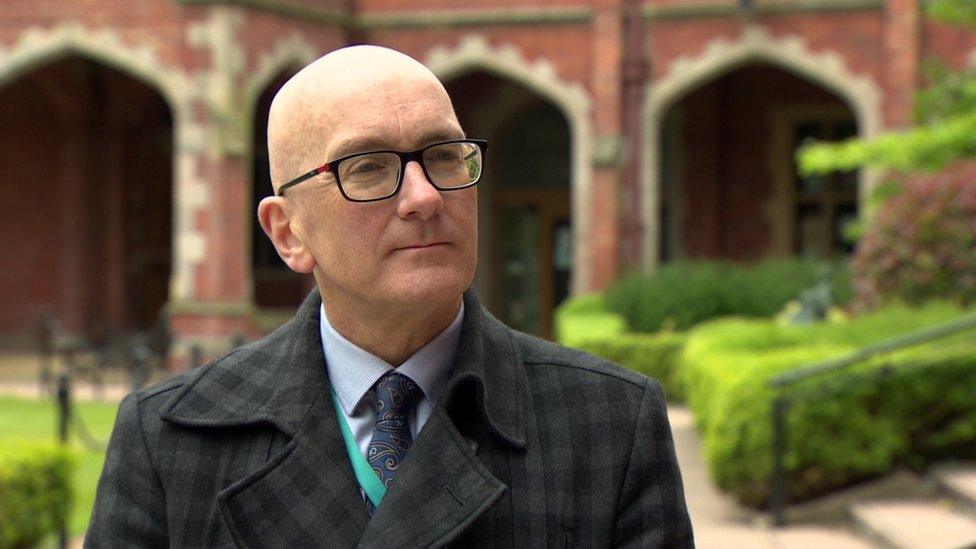
Ciaran Mulholland said psychiatrists "expect a surge" of mental health referrals
But Mr Mulholland added that "anyone who has more serious problems - feeling overwhelmed or very distressed - should go see their GP, be referred to mental health services and they'll be seen promptly and receive the appropriate treatment".
Dawn is using the tools she learned online to make the most of life in lockdown.
"Mental health issues are something we need to be more open about," she said.
"People talk about a broken leg easily, but perhaps mental health isn't something that you can physically see.
"But there are signs there that people can watch out for - if somebody is saying that they're not sleeping well, just ask, listen; why is that or are you worried about something?
"I haven't spoken to one person who has said that they're getting on fine with these restrictions, so I think it's something that people are a lot more open to talk about now.
"I think all we can do now is try within the boundary of isolating and do a new skill or find something that interests you - it's not just about reducing your stress levels, it's also about boosting your wellbeing.
"Making yourself feel better - that can help your mental health as well."

Further resources and information on mental health services:
Covid-19 Mental health and emotional wellbeing resources, external
Free Psychological First Aid E-module, external and guidance available for community workers
Free online stress control classes, external
Framework to support psychological wellbeing of HSC staff, external
Covid-19 bereavement resources, external
The 24/7 crisis counselling service Lifeline 0808 808 8000
Details on services for people with mental health needs, external
Directory of services in local areas, external to help improve mental health and emotional wellbeing
- Published21 May 2020
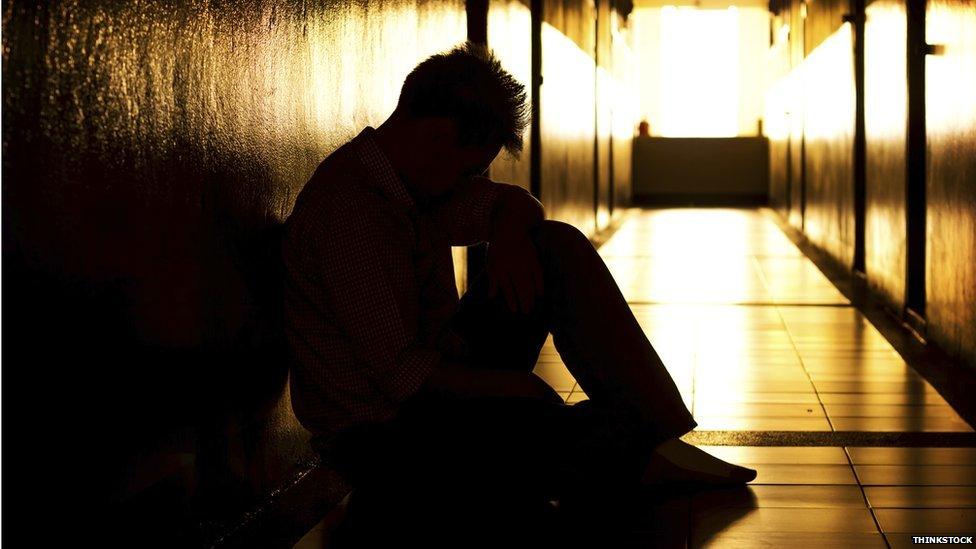
- Published20 May 2020
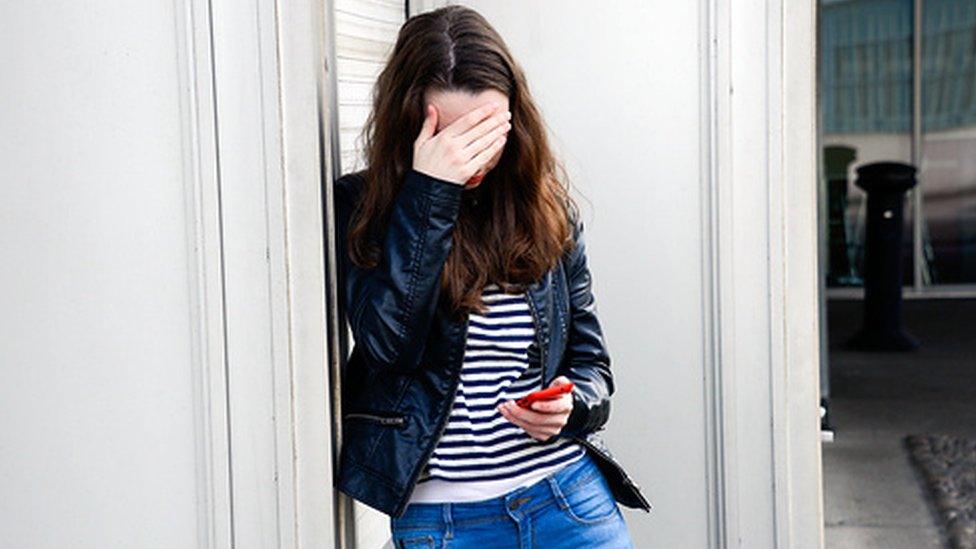
- Published21 May 2020
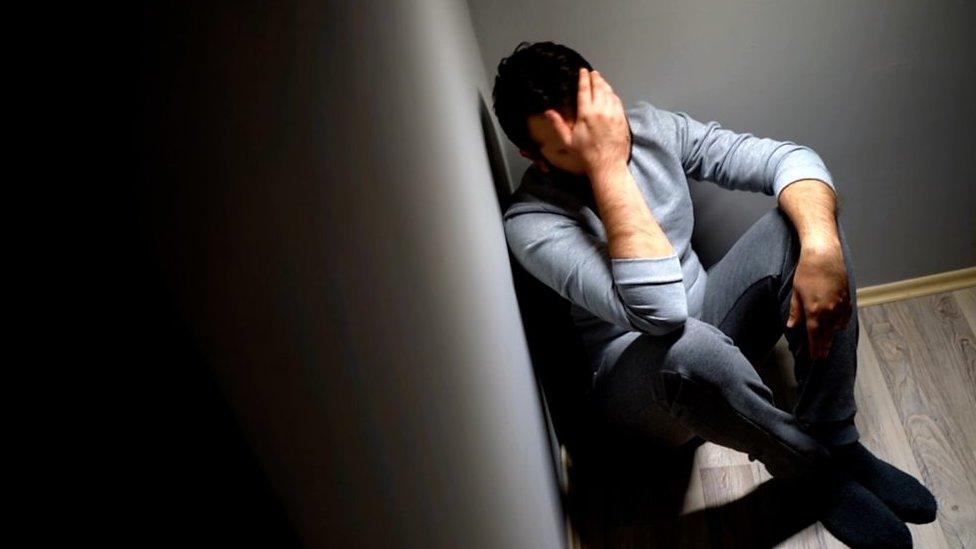
- Published7 May 2020
